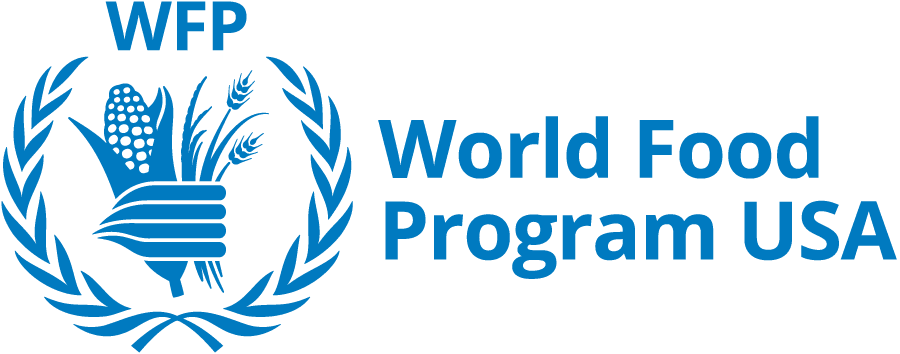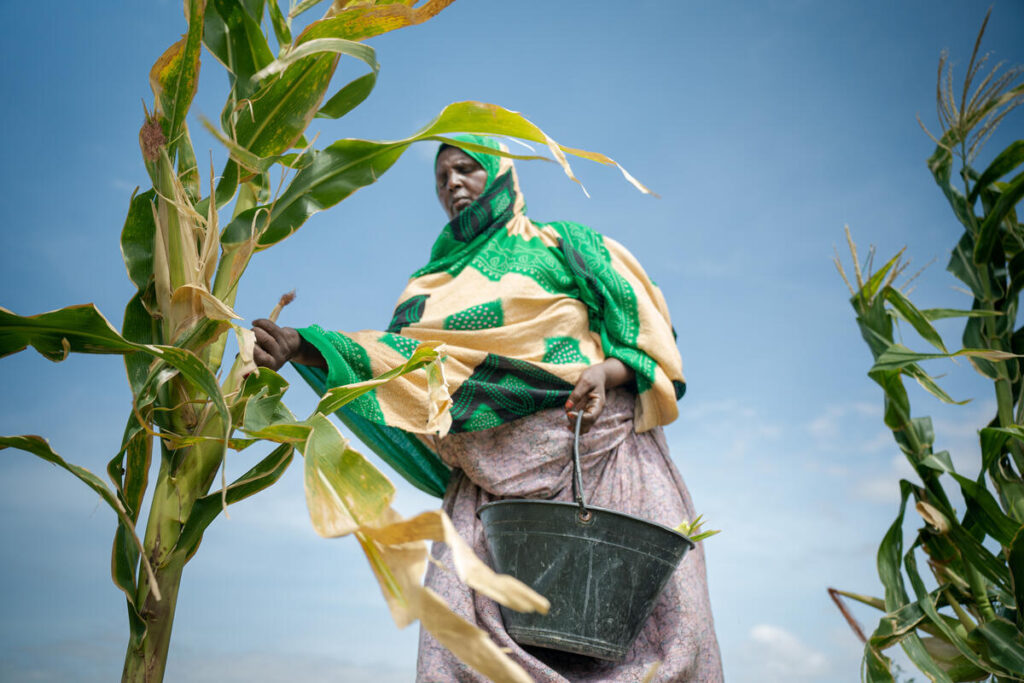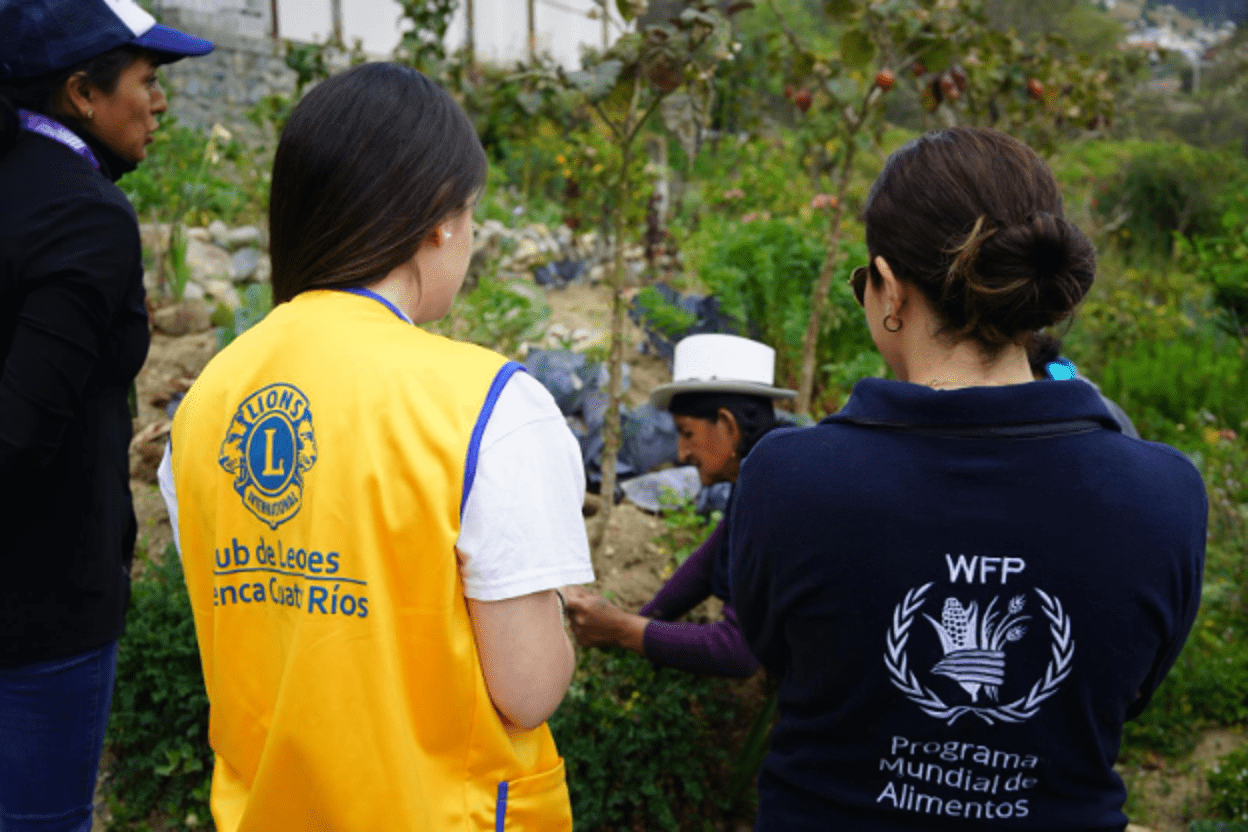World Food Program USA’s Fall Statement of Impact provides a snapshot of global hunger from May to September 2024 and how the United Nations World Food Programme (WFP) responded to hunger crises around the world. The report also highlights the different ways World Food Program USA’s partners powered WFP’s efforts to deliver emergency food assistance in crisis settings and invest in long-term solutions that change lives.
Global Hunger Update
A staggering 309 million people globally face acute hunger. The current hunger crisis is driven by conflict, economic hardship and the climate crisis. Humanitarian needs are highest in Gaza, Haiti, Mali and Sudan, where violent conflict has pushed millions of people into acute hunger. In pockets of Sudan and Gaza, catastrophic hunger conditions have set in. This means people have exhausted coping strategies, such as skipping meals and selling their assets, and are still unable to meet their daily nutritional needs.
 WFP supports a hot meal kitchen in Khan Younis, where people line up to receive what could be their only meal of the day.
WFP supports a hot meal kitchen in Khan Younis, where people line up to receive what could be their only meal of the day.
WFP Responds to Ongoing Emergencies
This October marks one year since the U.N. World Food Programme launched emergency operations in Gaza. The situation remains grim: More than 90% of the population has been displaced, and nearly 500,000 people face catastrophic levels of hunger. Despite immense challenges, the U.N. World Food Programme continues to provide food to over 1 million people each month. In August alone, we distributed over 9 million hot meals through 72 kitchens.
War has raged in Sudan for more than 500 days, leaving half of the population, 25.6 million people, facing acute hunger. The conflict has also triggered the world’s largest displacement crisis, with nearly 11 million people forced to flee their homes. Despite these challenges, the U.N. World Food Programme has delivered food and nutrition assistance to 8.4 million people and continues to scale up operations.
In Ukraine, the U.N. World Food Programme distributes cash assistance to people affected by the ongoing war. This cash gives families the flexibility to purchase essential food items and pay for healthcare and other household expenses. Cash also supports the country’s economic recovery. Since March 2022, the U.N. World Food Programme has provided over $550 million in cash support to Ukrainians.
 Julieth is a student in Ecuador. She is proudly holding some fresh produce grown by local farmers that will be used to prepare school meals.
Julieth is a student in Ecuador. She is proudly holding some fresh produce grown by local farmers that will be used to prepare school meals.
Our Continued Commitment to Changing Lives
Ending hunger takes more than just food. That’s why the U.N. World Food Programme also invests in school meals programs and livelihoods training.
During back-to-school season in the United States, World Food Program USA launched its second Erase Hunger™ campaign to send school meals to children who urgently need food. So far, the campaign has raised over $1 million, which is the equivalent of 4 million school meals for children worldwide.
Lisa Burgess, senior director for corporate partnerships at World Food Program USA, shared, “At WFP, school meals are more than just food; they are a lifeline. They transform communities, improve education and strengthen global food systems. The Erase Hunger campaign supports WFP’s school meals program, giving kids the nutrition they deserve.”
World Humanitarian Day Spotlight
Every day, dedicated U.N. World Food Programme staff work tirelessly to support communities affected by crises around the globe. On August 19, World Food Program USA commemorated World Humanitarian Day, a day set aside to honor humanitarian workers who have been killed or injured in the line of duty. This year’s theme, #ActForHumanity, highlighted the alarming rise in attacks against humanitarian workers and civilians, while advocating for the enforcement of international humanitarian law to address these grave violations. This year has been one of the deadliest years on record for humanitarian workers, hindering their ability to deliver vital assistance.
 Hani Naji is a shipping assistant for WFP port operations in Yemen. “I see WFP as the best place to save and change lives,” Hani shared. “I feel proud to be an aid worker at WFP and have dedicated my life to making the lives of others better.”
Hani Naji is a shipping assistant for WFP port operations in Yemen. “I see WFP as the best place to save and change lives,” Hani shared. “I feel proud to be an aid worker at WFP and have dedicated my life to making the lives of others better.”
In Yemen, 17 million people face acute hunger because of the ongoing conflict and deep economic crisis. Staff members like Hani Naji, a U.N. World Food Programme shipping assistant for port operations, play a key role in delivering food assistance. Knowing that his work directly alleviates hunger provides Hani with a profound sense of purpose. “Your trust and generosity enable us to reach those in the most remote and difficult-to-access areas, delivering not just food but also hope and the possibility of a better future. Thank you for standing with us in this vital mission.”
~
As we navigate these challenging times, WFP is grateful for the dedicated support of our donors and partners. Together, we’re working towards our joint mission to end global hunger. Read the full Fall 2024 Impact Report to learn more.






